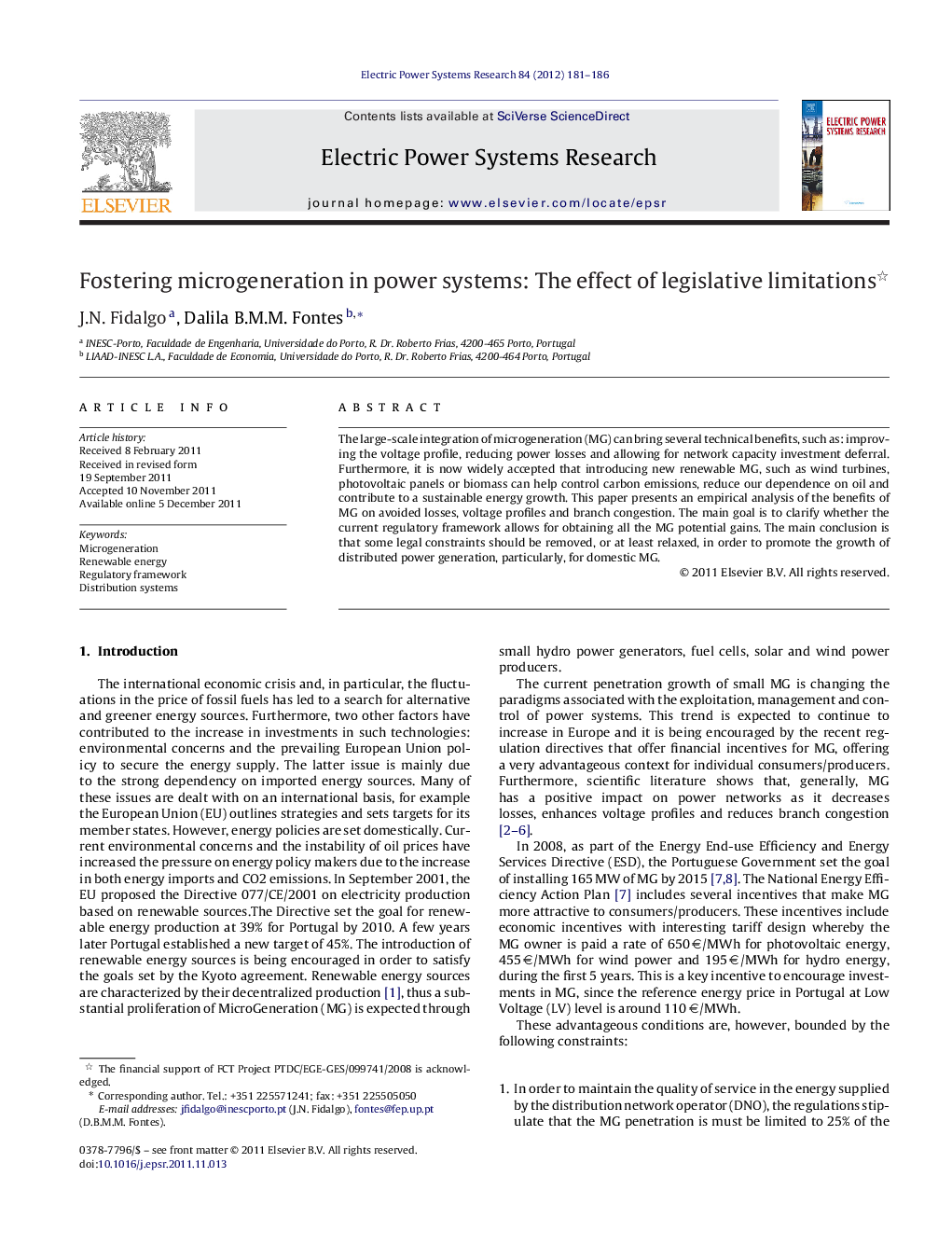| Article ID | Journal | Published Year | Pages | File Type |
|---|---|---|---|---|
| 704739 | Electric Power Systems Research | 2012 | 6 Pages |
The large-scale integration of microgeneration (MG) can bring several technical benefits, such as: improving the voltage profile, reducing power losses and allowing for network capacity investment deferral. Furthermore, it is now widely accepted that introducing new renewable MG, such as wind turbines, photovoltaic panels or biomass can help control carbon emissions, reduce our dependence on oil and contribute to a sustainable energy growth. This paper presents an empirical analysis of the benefits of MG on avoided losses, voltage profiles and branch congestion. The main goal is to clarify whether the current regulatory framework allows for obtaining all the MG potential gains. The main conclusion is that some legal constraints should be removed, or at least relaxed, in order to promote the growth of distributed power generation, particularly, for domestic MG.
► Portuguese legislation should be reviewed to allow for higher levels of MG penetration. ► We have shown that positive technical impacts increase with the MG penetration level. ► The practical regulation limit on MG penetration level is about 15%. ► MG penetration levels should be allowed to grow to at least 50%.
